Personal Growth Lesson Plan

Lesson Plan Mindmap for Personal Growth ” Click to Enlarge
CLICK ICONS TO JUMP DIRECTLY TO EACH SUBJECT ON THIS PAGE








PERSONAL GROWTH LESSON PLAN
This page is a free-shared lesson plan archive for teaching all educational subjects within the context and theme of “Personal Growth”. It is purposed for use in community education environments, homeschool environments, traditional schooling environments, or as a supplemental and fun addition to any education program. As part of the complete Education for Life Program, this lesson plan is specifically designed to work in conjunction with the other components: Foundations of Teaching, Curriculum, Teaching Strategies, Learning Tools and Toys, Evaluation Model, and The Ultimate Classroom. If you’d like to learn how all these components work together, click here. Click here for the specifics focused on just using the lesson plans:
CLICK HERE FOR A DETAILED TUTORIAL ON HOW TO USE THIS LESSON PLAN
NOTE: The colors are provided as a possible linear progression (red/easiest to violet/most challenging) for people that might prefer a more linear structure. Our core philosophy, however, is that through creativity every color can be made easy or challenging for any learning level.
RELATED PAGES (mouse-over for descriptions and click for complete pages)
EDUCATION OVERVIEW | HOW TO USE THIS COMPONENT | OUR OPEN SOURCE PURPOSE
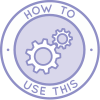
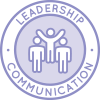
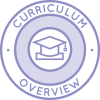
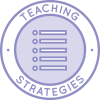
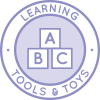
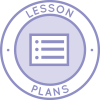
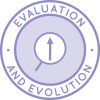
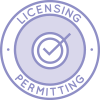
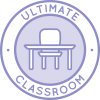
WAYS TO CONTRIBUTE TO EVOLVING THIS EDUCATION PROGRAM WITH US
SUGGESTIONS | CONSULTING | MEMBERSHIP | OTHER OPTIONS
A NOTE ABOUT ALL ONE COMMUNITY LESSON PLANS
The One Community lesson plans are intentionally designed for use in ANY educational environment and with ALL educational, cultural, religious/spiritual, and philosophical approaches to teaching and learning. They are designed without an ideological approach and specifically so they can be adapted to include the views, preferences, methodologies, and/or ideologies preferred by different parents and teachers.
For maximum flexibility and adaptation, they are also designed to be combined to teach multiple subjects at the same time. Doing this increases the creativity, effectiveness, and fun of your learning environment. Once we are on the property and operating our version of the complete school and Education for Life program, we will be adding video examples of how to combine the lessons. In the meantime, visit the Teaching Strategies page for a list of suggestions.
ARTS AND TRADES
CLICK HERE FOR THE COMPLETE SUBJECT OUTLINE FOR ARTS & TRADES
 | TEACHING ARTS AND TRADES WITHIN THE CONTEXT OF PERSONAL GROWTH |

| The Arts- Construct* something (such as a playdough sculpture) that symbolizes what personal growth means to you.
- Find ten objects that symbolize personal growth to you and create an art piece* that uses all of them. Explain* what each of the ten items means to you and why you chose each.
- Choose the area of art you feel you are strongest in and using that, create an artistic piece* that represents your personal growth journey in that.
- Choose the area of art you feel you are weakest in and using that, create an artistic piece* that represents your personal growth journey in that area and/or helps you grow your skills/comfort level in it.
- Choose a type of art you feel very strong in and write out* how/why you feel you became good at it. Turn this into a detailed strategy including 10+ keys to your success. Then apply* that strategy and those 10 keys to an area of art you feel you need further development in.
- Pick an artist you admire and research/study the development of their art work, abilities, processes, techniques, etc. over time and create a guide based on what you learned, including outlining a strategy for achieving excellence in that artistic field.
- Choose one artistic form, and one style /artist from a completely different art form, and thoroughly study their origins and techniques. Create an open source guide* for how to apply the skills & style you chose to the first form of art you chose. (Examples- create a dance in the skills & style of Andy Warhol, or a sculpture in the skills & style of Shakespeare, or a painting in the skills & acting style of Nicholas Cage, etc.) Also, create a real example* of your choice and include it in your guide.
|

| Trades- Name* 5 things that you would like to learn and one trade that would help you learn each, then try one (with help from an adult if needed).
- Pick one trade, then write two sentences each* about 5 different things that you could learn from that trade, and then try one of them (with help from an adult if needed).
- Choose 10 professions you find interesting. Research and rank them from greatest to least personal growth potential, and include a 2-5 page paper* with your information, conclusions, and explanations.
- Interview 2-5 trade professionals about 5-10 ways they have grown through their trades and write a 10 page tutorial* for how to apply those growth strategies to any learning/growth environment. Apply at least one of them if possible and include this application in your guide as an example.
- Pick a trade you think would have maximum growth potential, and learn at least 10 reasons why you would not want to do it. Pick a trade that you think would have the least growth potential and learn at least 10 reasons why you would want to do it. Spend at least 4-8 hours researching and/or interviewing someone in each trade, or (preferably) trying each trade out. Write a 3-5 page paper* documenting your experience and what you learned.
- Identify 10 trades in your local environment you could engage in. Choose one of them and spend a day doing it. Write an open source tutorial* about how to identify trades in your local environment, and what you learned from the trade you participated in.
- Write a guide* called “100 different things you could learn from 100 different trades” and open source it specifically as a tutorial for people to gain experiences and enhance their personal growth.
|
| CLICK HERE TO EMAIL US IF YOU HAVE AN IDEA TO ADD TO THIS SECTION |
* Please note that anything with an asterisk is just a suggestion. The diversity of options with asterisks are interchangeable and purposed to stimulate your own ideas. Any one of these suggestions could be replaced with a written paper, any form of art project (drawing, painting, music, paper mache, clay, wood, knitting/embroidery, metals, etc. etc.), an experiment, a presentation, a mindmap, a computer program, a web design project, a piece of poetry or a song, an interpretive dance or play, a group project, or anything else. What we feel is most important is that both the Learner and the Teacher agree on an exercise/activity they both feel would be maximally engaging, fun, and effective. If you come up with an idea we haven’t already thought of, please share it with us.
ENGLISH
CLICK HERE FOR THE COMPLETE SUBJECT OUTLINE FOR ENGLISH
Note: Any language can be substituted for English. The subject is listed here as “English” because that is the primary language of most of the people on the team, and the official language of the country we’re building our initial location in.
 | TEACHING ENGLISH WITHIN THE CONTEXT OF PERSONAL GROWTH |

| - Talk about* what has helped you grow your communications skills most.
- Write a few sentences* about each of 7 sources that have helped you develop your writing skills.
- Name the 10 resources that have influenced you the most in growing your language/communications skills. Pick 5 new resources that you want to use to continue your development and write a page* about your plans to use them and how you will implement them.
- Explore 3 regional dialects other than your own and how they have been influenced by varying cultures and circumstances. Use that as a metaphor for creating a strategy for influencing your own dialect/language and communications skills. Implement it for whatever period of time you can, and write a 1-2 page briefing* on your experience.
- Pick 5-10 different areas of your life that you have either already grown in or which to grow in, and create a professional presentation* for each, using a different presentation format for each (manuscripts, reports, formal letters, speech, resumes/cvs, etc.), that would be most appropriate/interesting for each.
- Analyze the strategies, languaging, and imagery designed to inform, persuade, entertain, and transmit culture which are used by the media and positions of influence. Evaluate the impacts/effects they have on the general population’s viewpoints and decisions. Create a 10 step action plan* for how you will use this information in your own life to discern what has influenced you up to this point, and also create a summary of what you learned including an action plan for how you will use this information to communicate with others in each of the main categories of your life (business/social/intimate relationships, etc.).
- Pick 5+ literary works that you feel would be most beneficial to personal growth, each of a different genre, and analyze each by means of different genre theories (examples found in the English molecule). Read the one you feel would be most impactful to your own growth, and write out a detailed guide/report* detailing the experience and how you can use what you learned, and include a write up of the entire procedure.
|
| CLICK HERE TO EMAIL US IF YOU HAVE AN IDEA TO ADD TO THIS SECTION |
* Please note that anything with an asterisk is just a suggestion. The diversity of options with asterisks are interchangeable and purposed to stimulate your own ideas. Any one of these suggestions could be replaced with a written paper, any form of art project (drawing, painting, music, paper mache, clay, wood, knitting/embroidery, metals, etc. etc.), an experiment, a presentation, a mindmap, a computer program, a web design project, a piece of poetry or a song, an interpretive dance or play, a group project, or anything else. What we feel is most important is that both the Learner and the Teacher agree on an exercise/activity they both feel would be maximally engaging, fun, and effective. If you come up with an idea we haven’t already thought of, please share it with us.
HEALTH
CLICK HERE FOR THE COMPLETE SUBJECT OUTLINE FOR HEALTH
 | TEACHING HEALTH WITHIN THE CONTEXT OF PERSONAL GROWTH |

| - Think about your life and choose 5 activities that you completed that you feel have contributed most to your personal growth. Make a picture* for each that highlights all the body parts that contribute to those activities.
- List and describe 20 different ways you feel you have grown in your emotional and/or social development. Choose 10 ways you feel you could improve even more. List & then implement specific activities for each of them for 5 days and give an oral report* on your activities and results.
- Examine your nutritional lifestyle and choose 1-3 nutritional practices you either have or could implement that you feel are most beneficial to your health and well being. Describe* each and its impacts on you in detail using pictures/diagrams and paragraphs.
- Study different fitness/wellness regime styles (P90x, dance, yogic meditation, etc.) and choose 10 different exercises/activities to incorporate into a holistic routine* that best supports your personal growth.
- Examine your social circle(s) and come up with at least one practice that you feel would help the social/emotional development of the individuals in that group. Inspire and lead your group(s) to implement or at least try the practice. Create an attention/emotion grabbing presentation* about your experience.
- Choose 10 belief systems/philosophies that are different from your own, choose 3 aspects of those that coincide with your own philosophies and write up a one week plan* to integrate those into your life. Implement the plan and report* on your results and how the project itself helped you grow.
- Do a comprehensive analysis of the world’s nutritional practices and choose the one you see as offering the most beneficial improvements for individual health. Create and open source a new comprehensive strategy* for implementation on a large scale.
- Do a comparative study of 10 different belief systems to find commonalities in personal growth promoting lessons and stories, and create an open source lesson book* about your findings.
|
| CLICK HERE TO EMAIL US IF YOU HAVE AN IDEA TO ADD TO THIS SECTION |
* Please note that anything with an asterisk is just a suggestion. The diversity of options with asterisks are interchangeable and purposed to stimulate your own ideas. Any one of these suggestions could be replaced with a written paper, any form of art project (drawing, painting, music, paper mache, clay, wood, knitting/embroidery, metals, etc. etc.), an experiment, a presentation, a mindmap, a computer program, a web design project, a piece of poetry or a song, an interpretive dance or play, a group project, or anything else. What we feel is most important is that both the Learner and the Teacher agree on an exercise/activity they both feel would be maximally engaging, fun, and effective. If you come up with an idea we haven’t already thought of, please share it with us.
MATH
CLICK HERE FOR THE COMPLETE SUBJECT OUTLINE FOR MATH
 | TEACHING MATH WITHIN THE CONTEXT OF PERSONAL GROWTH |

| - Learn 5 new shapes and attributes and learn and list* 1 real example of each of these shapes in use.
- Time yourself or someone doing a certain number of equations of the type you are studying. Learn strategies of becoming faster, then apply* strategies and keep doing similar timed tests until you are at least 25% faster.
- Choose an area of mathematics that you’d like to improve in, and do research and find 3+ strategies that others used to improve in it. Choose one that will work best for you. Write a plan* for how you will use that strategy for the next week and follow/share your plan.
- Explore a new counting system, study it, translate everything using new system. Challenge yourself this week by using* the new system (ex. dozenal) on anything you use numbers for for a week.
- Choose an area of math that you find challenging as a child or when learning it. Reflect on how you did or did not overcome any challenges in learning it and things that would have helped even more, and any techniques you found helpful. Do research on techniques that are effective for learning this type of mathematics to create a lesson plan* that will help others learn it faster/easier/with more fun.
- Choose an indigo level math and create a personal growth strategy* that is based on and incorporates this mathematics. Include 25+ relevant equations and/or graphs/mathematical representations.
- Create an open source pla*n for how to fast-track personal growth for individuals that use your plan using the violet-level math of your choice with the primary goal of affecting the most possible amount of people globally.
|
| CLICK HERE TO EMAIL US IF YOU HAVE AN IDEA TO ADD TO THIS SECTION |
* Please note that anything with an asterisk is just a suggestion. The diversity of options with asterisks are interchangeable and purposed to stimulate your own ideas. Any one of these suggestions could be replaced with a written paper, any form of art project (drawing, painting, music, paper mache, clay, wood, knitting/embroidery, metals, etc. etc.), an experiment, a presentation, a mindmap, a computer program, a web design project, a piece of poetry or a song, an interpretive dance or play, a group project, or anything else. What we feel is most important is that both the Learner and the Teacher agree on an exercise/activity they both feel would be maximally engaging, fun, and effective. If you come up with an idea we haven’t already thought of, please share it with us.
SCIENCE
CLICK HERE FOR THE COMPLETE SUBJECT OUTLINE FOR SCIENCE
 | TEACHING SCIENCE WITHIN THE CONTEXT OF PERSONAL GROWTH |

| Life Sciences- Pick an animal or plant of your choice (or one of each) and list* 5 ways that your personal growth has been like the growth of that animal or plant.
- Do you think the life cycles/stages of life of plants, insects, or other animals best represents your personal growth journey? Once you have decided, study the life cycle/stages of life a specific living thing in that a group and write a page* about this, drawing parallels between it and your own growth process.
- Study an ecosystem and identify 30 different aspects you can relate to personal growth. Create a picture* of your future personal growth ‘ecosystem’ side by side with the ecosystem you studied, pointing out the 30 aspects you identified and include a brief explanation of each and how they relate.
- Describe/show* in detail the biochemical process that happens in your body when you learn something new.
- Pick an area of your life and a blue level science, and make a scientific metaphor about the growth area of that part of your life, writing a half a page* about each of 20+ aspects of your growth process.
- Choose the 5 indigo level life sciences that you feel are most related to your personal growth process, and write 2 pages* explaining the specific scientific elements of each area you chose and how it relates to your personal growth process/experience/life plan.
- Write an open source online personal growth tutorial* for how to specialize in /become and expert in a specific life sciences field of your choice. Include all the different related skills needed, detailed areas of expertise that you would gain, professional options that would use the knowledge, associated contributions to society, and the most cutting edge/innovative areas of study in the field and where it may be going in the future, best ways/locations to learn it, and how that field and a person’s specific contributions within it may contribute to positive world change in the future.
|

| Physical Sciences- Name 5 items that have been the most beneficial to your personal growth. For each, explore* how the materials they are made of and /or texture has or has not contributed to benefitting you.
- Demonstrate and/or explain* one way that each of the following has contributed to your personal growth: Matter, energy, light, electricity, and magnetism.
- Describe* 6 aspects of your personal growth and use 6 different simple machines as metaphors for each, and come up with a creative way to demonstrate* each and show how they work.
- Run the calculations* on the physics behind one of your favorite activities that you are currently developing. Determine what it takes with scientific equations to move from good to great, and then apply what you learned and give a 3+ minute oral report* on your results.
- Pick 10 areas of your personal growth and create scientifically valid arguments* for each on how conservation of motion affected each. Create an objective method for ranking* them from the most to least affected by the principals of conservation of energy.
- Pick a growth related activity or aspect in your life that specifically involves or leverages thermodynamics. Research and calculate ways in which changing the thermodynamic aspects would be a benefit and/or detriment to that activity. Create an open source presentation* that is geared towards sharing what you learned in an interesting way with others that engage in that type of activity.
- Choose the violet level physical science that you feel would be the most beneficial for your own personal growth and/or the personal growth for the largest amount of people worldwide. Research aspects of it you feel would be most applicable to personal growth, and create an open source lesson plan/strategy/guide* for how to use that science to enhance personal growth.
|

| Earth Sciences- Discuss* 2 personal growth activities that you like to do most in each of 4 different types of weather.
- Study the solar system. Imagine that you are the sun, and ‘map out’* where people in your life that have affected your personal growth journey using a small scale of the solar system with each different celestial body representing someone in your family (example – if I am the sun my mom is mercury because she is the one I spend most time with and she is small).
- Learn about the ‘Earth Components, Resources, Land-forms and Characteristics’ in your neighborhood (perhaps taking a walk/field trip to see some up close) and how they have or have not changed over time (50,100,1000, and 100,000 years ago). Write 3-5 pages* about how these things have or have not impacted your personal growth and how/why they would have potentially affected people differently 50, 100, 1,000 and 100,000 years ago.
- Relate and showcase* the different layers of the atmosphere and earth’s crust to different stages of your past, present, and future personal development.
- Pick an area of your life and a blue level science, and make a scientific metaphor about the growth area of that part of your life, doing a 20 minute presentation* about 20+ aspects of your growth process.
- Choose the 5 indigo level earth sciences that you feel are most related to your personal growth process, and write 2 pages* explainings the specific scientific elements of each area you chose and how it relates to your personal growth process/experience/lifeplan.
- Choose the violet level earth science that you feel would be the most beneficial for your own personal growth and/or the personal growth for the largest amount of people worldwide. Research aspects of it you feel would be most applicable to personal growth and to that of others, and create an open source lesson plan/strategy guide* for how to use that science to enhance personal growth.
|
| CLICK HERE TO EMAIL US IF YOU HAVE AN IDEA TO ADD TO THIS SECTION |
* Please note that anything with an asterisk is just a suggestion. The diversity of options with asterisks are interchangeable and purposed to stimulate your own ideas. Any one of these suggestions could be replaced with a written paper, any form of art project (drawing, painting, music, paper mache, clay, wood, knitting/embroidery, metals, etc. etc.), an experiment, a presentation, a mindmap, a computer program, a web design project, a piece of poetry or a song, an interpretive dance or play, a group project, or anything else. What we feel is most important is that both the Learner and the Teacher agree on an exercise/activity they both feel would be maximally engaging, fun, and effective. If you come up with an idea we haven’t already thought of, please share it with us.
SOCIAL SCIENCES
CLICK HERE FOR THE COMPLETE SUBJECT OUTLINE FOR SOCIAL SCIENCES
 | TEACHING SOCIAL SCIENCES WITHIN THE CONTEXT OF PERSONAL GROWTH |

| - Pick an area of your life that you’d like to improve personally and ask 3 people in your family for strategies that they have used to improve this. Implement* one for five days and talk about your results.
- Pick 3 cultures different from your own and study the personal growth “rituals” that children and/or adults are expected to participate in, and create a presentation with a diorama* to share your findings.
- Study the personal growth “rituals” of your family /local community and larger community (city/country/state as applicable) and how this has changed over 10, 25, 50, and 100 years and create a 1-2 page report* on your findings.
- Find 5 laws that you feel do and five that you feel do not support/encourage personal growth. Research how/why each of these became law and create a fun way to teach* others what you learned.
- Research the psychological components that are involved with people that are prone to or not prone to be highly engaged with personal development. Create and open source a strategy* you design to get more people that would otherwise not choose personal development to get engaged more proactively. Include your findings in your open source project and data that supports and psychological and neuroanatomical benefits/detriments of choosing to or choosing not to engage proactively in personal development.
- Create a sociological experiment* designed to study conditions in which the behavior of others affects the personal development choices of individuals. Open source your experiment and results and include an example of how to use this data positively in the world to help others develop their personal development.
- Do an in-depth analysis of personal growth strategies throughout history and cultures in search of 20 that you feel would be the most beneficial to helping the most people in each of the 5 most populated cultures in today’s world. Develop and implement a strategy* to disseminate the information and action plans needed to help people in the most beneficial way.
|

| Foreign Languages
(Each of the following is to be completed in the foreign language(s) being studied)- Learn* words for different personal growth related concepts.
- Read & write paragraphs* with words for personal growth related concepts.
- Explore ‘personal growth’ in fiction by reading and discussing* 3 stories/parables about it.
- Explore & create different types of literature* in relation to personal growth.
- Compose a new piece of literature* about personal growth.
- Explore the complete history of and writings about personal growth words and share* what you learned in a new open source guide*.
- Write a dissertation level paper* on personal growth.
|
| CLICK HERE TO EMAIL US IF YOU HAVE AN IDEA TO ADD TO THIS SECTION |
* Please note that anything with an asterisk is just a suggestion. The diversity of options with asterisks are interchangeable and purposed to stimulate your own ideas. Any one of these suggestions could be replaced with a written paper, any form of art project (drawing, painting, music, paper mache, clay, wood, knitting/embroidery, metals, etc. etc.), an experiment, a presentation, a mindmap, a computer program, a web design project, a piece of poetry or a song, an interpretive dance or play, a group project, or anything else. What we feel is most important is that both the Learner and the Teacher agree on an exercise/activity they both feel would be maximally engaging, fun, and effective. If you come up with an idea we haven’t already thought of, please share it with us.
TECHNOLOGY AND INNOVATION
CLICK HERE FOR THE COMPLETE SUBJECT OUTLINE FOR TECHNOLOGY AND INNOVATION
 | TEACHING TECHNOLOGY & INNOVATION WITHIN THE CONTEXT OF PERSONAL GROWTH |

| Technology- FInd and use 5 learning apps, programs, or toys, that you feel would help you learn something. Choose the one you feel would be most fun and helpful for helping you learn and use* it for 5 days, and report on your results.
- With the help of an adult, pick an aspect in your environment and learn how it was made and how it works (taking one like it apart if possible), and write a short summary* of what you learned.
- Pick 2-5 yellow level areas of technology and 10-20 things you would like to learn within those areas, and learn those things. Write a 3 page paper* on what you learned, how you learned it, and how this will be useful to your future.
- Choose 3 green level technologies that you feel would go together, and create and complete a project* using all three of them, in a way that allows you to learn and demonstrate at least one new skill in each area.
- Study a blue level system and choose and describe 20 elements of that system that you think are important to the success of that system at its peak, and the history of how that system ‘came to be’. Develop a working model* for personal development using the system you chose as the inspiration and guide for your creative process.
- Study the strategies of a successful technology based industry of your choice (in any industry other than personal development), and create a new personal development strategy based on the successful approaches you learned from that industry. Apply* that strategy and create an open source manual* that shares everything in and about your process and learnings.
- Create an evaluation and summaries of the top 100 technologies for personal growth, in a specific area or in general. Pick the areas of your life you would most like to improve and the ten you feel are the best to help you do this, and create an open source tutorial* for implementing these technologies into a self development regime. Apply the regime and add your results to the tutorial.
|

| Innovation- Talk about three lessons and/or activities/games that have learned that you feel have helped you grow and develop as a person the most. Then choose one of them and teach* it to someone.
- Imagine what might happen both if you did and if you did not focus on your own personal growth for 10 years and who you may become. Do the same thing thinking about what you would be like in 20 years. Consider what type of person you might become in both scenarios, the impacts you may have on other people, and what effects each scenario could have on your family, community, and even on the whole world. Imagine then what happens then when large amounts of people focus in either direction, and create a project* to showcase all of this and share it with others.
- Imagine what type of person you would like to be like in 3 years and list out 5 major personal characteristics you would like to have people recognize you as having and 5 major goals you would like to have accomplished by then. Create a development plan* for each of at least 3 of those characteristics and 3 of those goals.
- Choose an area of focus that you feel you would most benefit from developing from the green level innovations section, and create a lesson plan* for yourself on how to develop it, with the goal of sharing that lesson plan to help others develop it as well.
- Study the strategies of a great inventor or industry icon (in any industry other than personal development), and create a new personal development strategy based on the successful approaches you learned from that individual. Apply* that strategy and create an open source manual* that shares everything in and about your process and learnings.
- Choose the 10-20 people you admire the most from the indigo innovations section and study the personal development strategies that each one of these people either teaches or has personally used. Look for the commonalities and develop a methodology for personal growth that others can follow. Create an open source resource* that others can interface with and use to develop themselves.
- Choose a style from a world change or socially impacting field, and a notable individual of your choice from a completely different field, and thoroughly study their origins and techniques. Create an open source guide* for how to apply the techniques/style from the second to the first. Create and thoroughly outline a fully developed example of applying your strategy (sample example- how to apply the psychological techniques of Carl Jung to the social change principles of Karl Marx) and include it in your guide.
- Choose the violet level topic from any subject that you feel would be the most beneficial for your own personal growth and/or the personal growth for the largest amount of people worldwide. Research all the avenues, venues, resources, etc. that you can find, and create and open source what you see as the best strategy* for learning and mastering that topic.
|
| CLICK HERE TO EMAIL US IF YOU HAVE AN IDEA TO ADD TO THIS SECTION |
* Please note that anything with an asterisk is just a suggestion. The diversity of options with asterisks are interchangeable and purposed to stimulate your own ideas. Any one of these suggestions could be replaced with a written paper, any form of art project (drawing, painting, music, paper mache, clay, wood, knitting/embroidery, metals, etc. etc.), an experiment, a presentation, a mindmap, a computer program, a web design project, a piece of poetry or a song, an interpretive dance or play, a group project, or anything else. What we feel is most important is that both the Learner and the Teacher agree on an exercise/activity they both feel would be maximally engaging, fun, and effective. If you come up with an idea we haven’t already thought of, please share it with us.
VALUES
CLICK HERE FOR THE COMPLETE SUBJECT OUTLINE FOR VALUES
 | TEACHING VALUES WITHIN THE CONTEXT OF SPRING |

| - Draw a picture* of the 5 values that you feel have contributed the most to your personal growth.
- List from greatest to least important the ten values that you feel could most contribute to your personal growth. Write 2 examples* for each on how you can apply these to your life even more.
- List 20 values you think contribute most to personal growth, personality and individuality and then create a mind map* on how they contribute to your own personal growth in these areas.
- Interview a different person for each of the green level values and write an examples of how each of those values have helped that person grow. Then write a paragraph* for each value sharing how you can/will use what you learned from the others for your own personal growth.
- Write an analysis of 50 organizations doing good things in the world. Consider your own personal growth and choose the 3 that you feel your participation in will contribute to both your own growth and the achievement of the organization’s goals/mission. Find a specific way that you will actually be able to contribute right now. Take action, participate, and write a 3 page paper* summarizing how you actually grew from the experience of helping the organizations.
- Take each of the indigo values and choose the person or organization who best represent that value and write a 2 to 3 pages* comparing and contrasting your relationship with values to the person or organizations representation of that value and include at lease 2 ways you can apply what you learned for your own betterment.
- Your goal is to write a tutorial* that will help other people grow from doing historical research within the context of values. Do this by choosing 20 violet-level values and match them with a movement in history that you feels best represent that value and then write a page about each movement and how it added or detracted from the personal growth of humanity. Then find a way to publicly share your tutorial and findings.
|
| CLICK HERE TO EMAIL US IF YOU HAVE AN IDEA TO ADD TO THIS SECTION |
* Please note that anything with an asterisk is just a suggestion. The diversity of options with asterisks are interchangeable and purposed to stimulate your own ideas. Any one of these suggestions could be replaced with a written paper, any form of art project (drawing, painting, music, paper mache, clay, wood, knitting/embroidery, metals, etc. etc.), an experiment, a presentation, a mindmap, a computer program, a web design project, a piece of poetry or a song, an interpretive dance or play, a group project, or anything else. What we feel is most important is that both the Learner and the Teacher agree on an exercise/activity they both feel would be maximally engaging, fun, and effective. If you come up with an idea we haven’t already thought of, please share it with us.
OTHER RESOURCES
We're building a resource section. Click here if you have a suggestion or resource for this page.
OPEN SOURCE SUBJECT RESOURCES (click icons for complete pages)



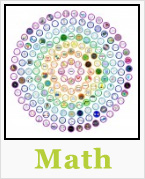



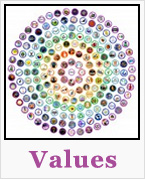
OPEN SOURCE CURRICULUM OUTLINES (click image for summaries and links to complete pages)
CARE
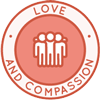
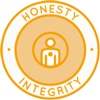
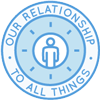
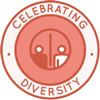
SHARE
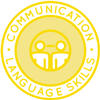
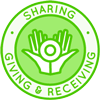
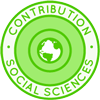
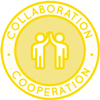
PLAY
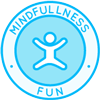
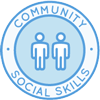
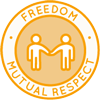
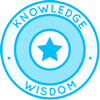
OPEN SOURCE TEACHING METHODOLOGY SUMMARIES
Montessori | Waldorf | Orff | Reggio | Multi-Intelligence | Bloom's Taxonomy | Study Tech | I-WE
INDEX OF ALL THE ONE COMMUNITY OPEN SOURCE LESSON PLANS

Click this image for the Lesson Plans for Life page with links to the rest of the lesson plans
THE WORLD'S LARGEST ONLINE FREE EDUCATION RESOURCE ARCHIVE
RELATED CONTENT AND OTHER RELATED RESOURCES
We're building this resource section. Click here if you have a suggestion or resource for this page.














 One Community
One Community












